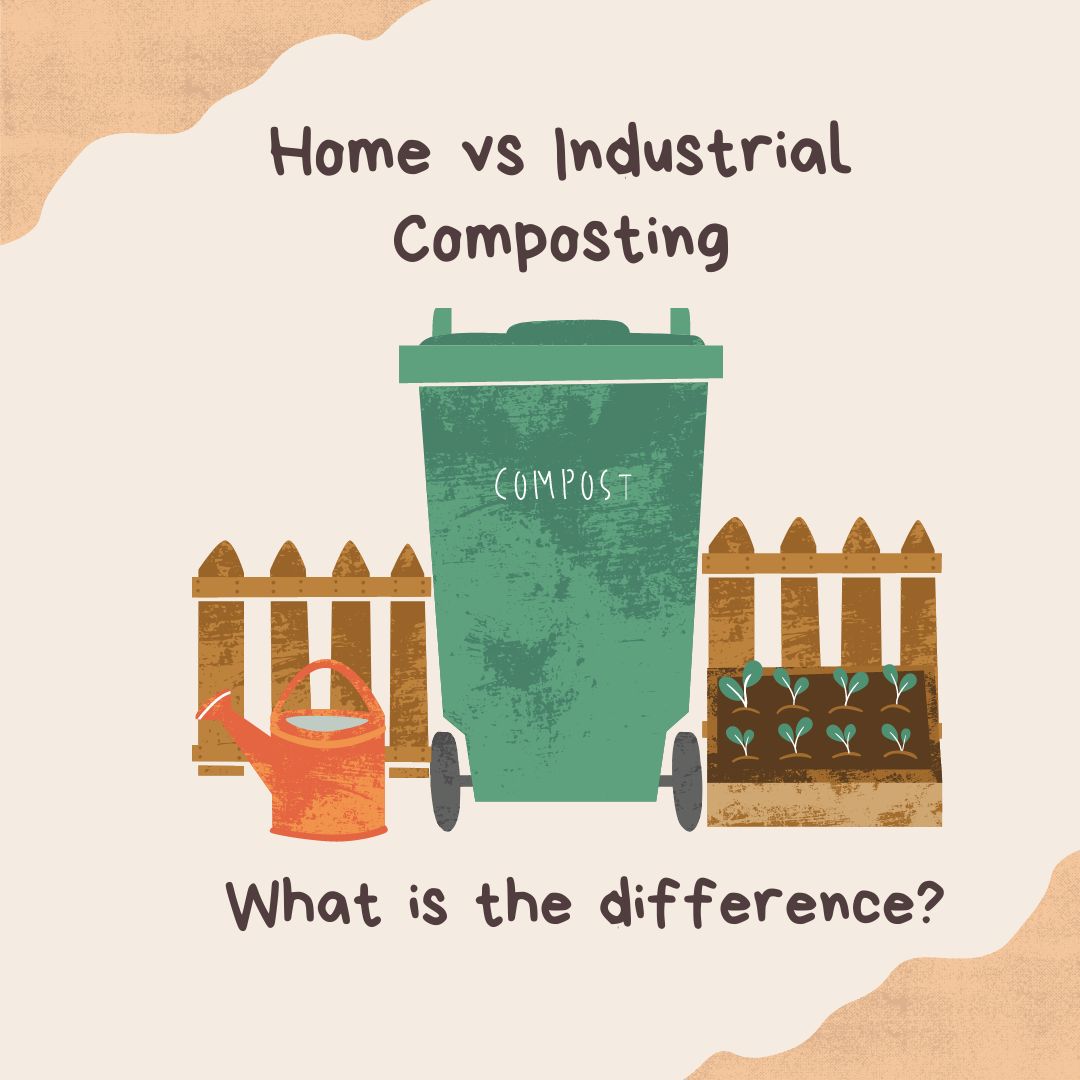
The Difference Between Home and Industrial Compostable Packaging
If a product is labelled compostable, does that mean it can be composted at home or does it need more accelerated conditions as seen in industrial composts?
Let's find out what the difference is between the two types of composting techniques and why do we choose to package our tea in home compostable packaging?

Firstly..let's explore how composting works for a minute...
Composting breaks down organic matter via bacteria, worms and other organisms to create a nutrient rich Compost. This can then be use for fertiliser. This occurs over a period of months normally in a home compost bin.
Industrial Composting basically takes place in a dedicated facility with conditions such as increased heat and oxygen, shredding pieces into smaller pieces to break things down much quicker.
So when you read "Compostable" on a product label, can you break it down in your own home compost or not?
If you're not sure what to believe then you're not alone! We too also wonder if all compostable packaging out there is truly compostable in a home compost situation.
For example, some Bioplastic products that say compostable (eg. plastic spoons) won't break down in a home compost as the the conditions and temperatures are not effective.
